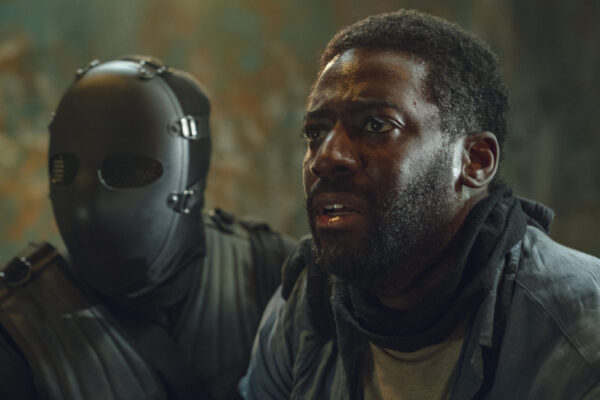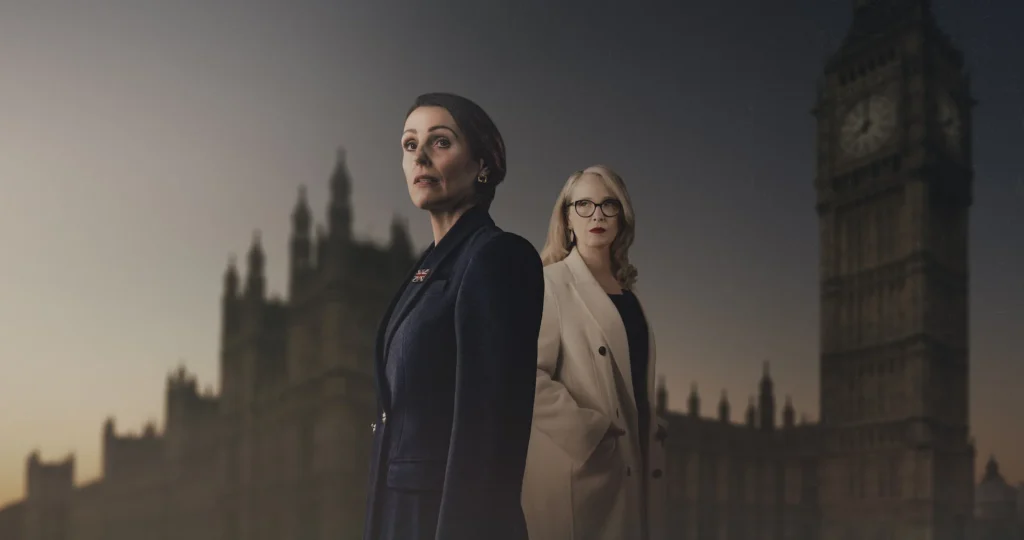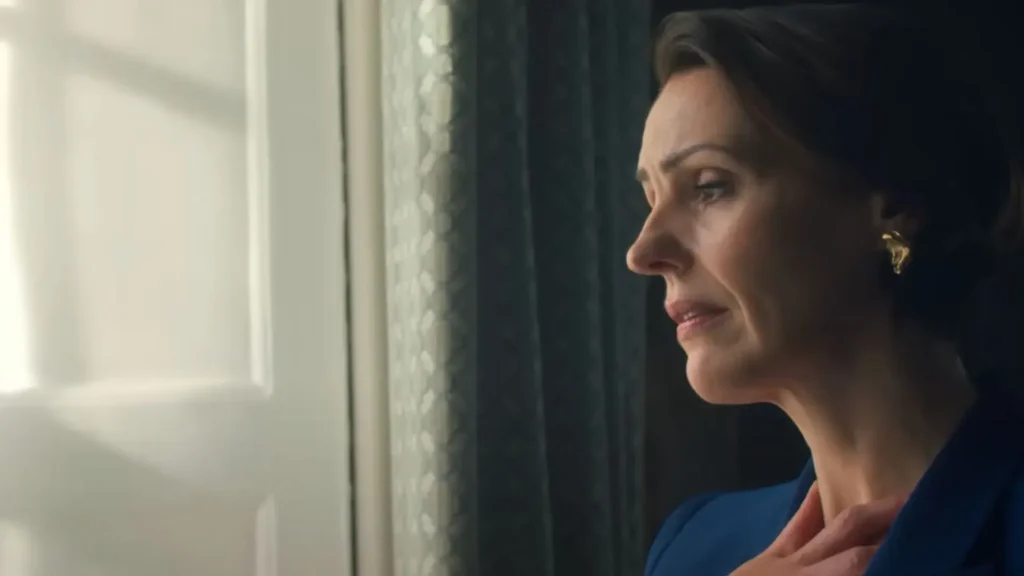Political thrillers love their cliffhangers, and Netflix’s Hostage doesn’t disappoint at all. The series blends tense action with political intrigue and by the the final credits roll, viewers are left with both resolution and lingering questions. The Hostage ending doesn’t just wrap up a crisis, it reframes the story into something much larger, spilling out of safe houses and government offices into the very fabric of public trust.
So what really happens in those last chaotic hours? Let’s unpack the betrayals, the bullets and the political fallout that define the finale.
⚠️Spoiler Alert: This article digs deep into the ending of Hostage and unpacks every major twist, reveal and character fate. If you haven’t finished the series yet, you might want to bookmark this page and come back after watching, unless, of course, you enjoy knowing the surprises before they land.
The Bigger Picture Behind The Kidnapping
At first, Hostage looks like a classic hostage kind of thriller. With the Prime Minister Abigail Dalton’s family taken and she’s forced into a series of impossible choices. But the Hostage ending pulls the rug out by showing that the story runs far deeper than it seems.
The kidnappers turn out to be more than nameless thugs, they are former soldiers led by John Shagan, a man who has nursed a bitter grudge for years. Back when Abigail Dalton was still a junior minister, she authorized a mission in Belize that went terribly wrong. Troops were left behind, many were killed and the survivors carried the weight of that betrayal ever since. As for Shagan, the kidnapping is deeply personal. It isn’t about ransom or political leverage, it’s about settling a score that’s haunted him for years. He calls it justice for the men who die, though to everyone, it looks like pure vengeance.
The revelation of General Livingston’s involvement takes things to another level. It shows that this isn’t just Shagan’s fight, it’s a cover up at the highest levels of the military, proof that the system would rather bury its mistake than admit to them.
The Second Hostage Situation

When it finally seems like Dalton’s family is out of danger, Shagan resurfaces with Saskia and tracks them to a safe house. Alex and Sylvie are seized at gunpoint, throwing Dalton right back to the crisis.
This sequence underscores one of the series central themes that safety is an illusion. It’s a brutal reminder that in politics and in family, the ground can shift in an instant. Dalton has spent her career making trade-offs in the name of national security, but now the stakes are personal and there’s nowhere left to hide.
A Final Confirmation
The Hostage ending builds to a tense confrontation between Dalton, Shagan and her family. Shagan insists Dalton should take her loved ones’ place, forcing her to face the consequences of her past decisions. But the twist comes when Sylvie, pushed to the edge, takes the gun herself and shoots Shagan. The man who demanded revenge is brought down not by the Prime Minister, but by the very daughter he tried to use as leverage.
The moment feels like justice, but it’s also devastating. Sylvie has saved her family, yet the cost is her innocence, something that can never be undone.
Political Fallout

There’s no pause after Shagan’s death. As Dalton’s personal ordeal winds down, the broader political stage erupts. French President Vivienne Toussaint who is an essential ally, is killed in a bombing organized by the same conspirators.
With the act, the conflict escalates from a family tragedy into an international crisis. Dalton is no longer just a leader fighting for her family’s survival, she’s been thrust into the middle of a geopolitical firestorm.
The tonal whiplash is striking. One scene is intimate and personal, the next global and catastrophic. That contrast is exactly what gives the Hostage ending its force.
Also, read Sirens Ending Explained: Power, Pain and Price of Perfection
The Final Scene
After the blood, betrayal and loss, Dalton steps in front of the public. Instead of projecting weakness, she leans into resolve. In a televised speech, she announces a snap general election, promising a “radical new mandate”.
It’s a bold move. On the one hand, it’s Dalton’s way of seizing control, of showing she won’t be defined by hostage crises or conspiracies. On the other hand, it’s a gamble. Elections are unpredictable and she’s opening herself up to the judgement of a public that has just seen how fragile the halls of power can be.
The speech is both defiance and confession. Dalton admits the need for renewal while asserting her determination to rebuild trust. Whether that gamble pays off is a story left for a potential second season.
Themes of The Hostage Ending

The final episodes leave us with a lot to chew on:
- The Cost of Leadership: Dalton’s choices in Belize haunt her, proving that political decisions have long shadows.
- Cycles of Violence: Shagan frames his vendetta as justice, but it only breeds more loss. Sylvie’s act of self-defense blurs the line between victim and participant.
- Trust in Institutions: With a general involved in the conspiracy and a foreign president assassinated, the finale questions whether any structure of power is safe from corruption.
- Family and Politics Collide: Dalton’s dual roles as leader and mother collide in brutal ways. The Hostage ending forces her to reckon with both identities simultaneously.
Why The Ending Works
What makes the Hostage finale satisfying is its balance of closure and possibility. Shagan’s death closes the revenge storyline, but the fallout ensures the world beyond the Dalton family is far from stable. The personal merges with the political and the promise of a new mandate suggests a second season would deal less with immediate survival and more with the messy business of rebuilding
It’s both definitive and open-ended, a trick that keeps viewers debating long after the show is over.
Also, read Zero Day Ending Explained: Truth, Consequences and One Seriously Bold President
Final Thoughts
Netflix’s Hostage is everything you want from a political thriller. There are shocking confrontations, emotional payoffs and enough loose threads to keep the fans hungry for more. Dalton survives the nightmare, but the cost is heavy, her daughter scarred, her allies dead and her country destabilized.
By announcing new elections, Dalton reframes herself as a fighter, some ready to face the music rather than hide behind closed doors. Whether she truly restores trust or simply steps into another crisis is left tantalizingly unanswered.
For now, though, the series closes on a note of resilience. The hostage crisis is over. The political battle is just beginning.
Frequently Asked Questions
1. Who is the real villain in Netflix’s Hostage?
The true antagonist is John Shagan, a rogue soldier seeking revenge for an operation in Belize that Dalton once oversaw. His personal vendetta drives the kidnapping plot.
2. What happens to John Shagan at the end?
He’s killed by Sylvie, Dalton’s daughter, during the final hostage standoff. It’s a shocking twist that gives closure to his revenge plot.
3. Why is the French President killed?
Vivienne Toussaint is assassinated in a bombing orchestrated by the conspirators, escalating the crisis into an international political disaster.
4. What does Dalton mean by a “radical new mandate”?
By calling a snap general election, Dalton is seeking to rebuild public trust and reshape her political authority in the aftermath of the crisis.
5. Does the ending set up a second season?
Yes. While the immediate hostage situation is resolved, the political fallout—particularly Dalton’s gamble on new elections—leaves plenty of room for continuation.